대한전자공학회
The Institute of Electronics and Information Engineers
The Institute of Electronics and Information Engineers
|
(사)대한전자공학회 연구회 행사
|
|
*사전등록기간 : ~ 2023. 7. 31.(월) 18시까지
초대의 글
여름학교 개요
프로그램 (세부일정)
[ 2023년 8월 3일(목)~4일(금). 서강대학교 정하상관 302호 ]
첫째날 : 2023년 8월 3일(목)
* 주최측의 사정으로 프로그램이 일부 변경될 수 있습니다.
둘째날 : 2023년 8월 4일(금)
* 주최측의 사정으로 프로그램이 일부 변경될 수 있습니다.
여름학교 등록안내
여름학교 등록비 안내
o 등록기간 : ~ 2023년 7월 31일(월) 18시 까지 o 아래 사전등록 클릭 - 사전등록 정보 입력 및 등록비 결제 진행을 하여주시기 바랍니다. o 카드결제가 불가하신 분께서는 계좌시, 아래 계좌정보로 이체하여 주시기 바랍니다. o 대한전자공학회 사업자등록증(2023년) 사본 (클릭 다운로드 -PDF) 영수증 및 계산서 발급안내
문의처
|
||||||||||||||||||||||||||||||||||||||||||||||||||||||||||||||||||||||||||||||||||||||||||||||||||
| 연사 | 강연 요약 및 연사정보 |
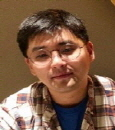 최성준 교수 (고려대학교) |
언어기반 로보틱스의 최근 연구 동향
Email: sungjoon-choi@korea.ac.kr
본 강연에서는 GPT로 대표되는 언어모델이 로보틱스에 어떻게 활용되고 있는지에 대해서 알아본다. 먼저 영상-언어 모델들의 간단한 설명과 모션 생성 및 물체 인지 및 탐색 문제에 언어기반 로보틱스가 어떻게 연구되고 있는지를 본 연구팀에서 진행되는 연구 위주로 설명할 예정이다.
|
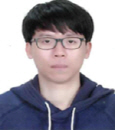 홍두영 CTO (dSPECTER) |
필드 로보틱스와 영상 처리 기술
Email: dyhong@dspecter.com
본 강연에서는 필드 로보틱스에서 활용되고 있는 영상 처리 기술과 엣지 레벨에서의 영상 처리 기술을 위한 보조 기술들에 대하여 소개한다. 사족보행 로봇, 영상 처리를 위한 통신 환경 및 프로토콜 그리고 AI 모델의 최적화 같은 필드 로보틱스의 방법론들에 대해서 소개한다.
|
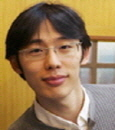 임재환 교수 (KAIST) |
Skill-based Robot Learning
Email: joe.lim@kaist.ac.kr
Many robotics tasks, even seemingly simple procedural tasks like assembly and cleaning, require a continuous cycle of planning, learning, adapting and executing of diverse skills and sub-tasks. However, deep reinforcement learning algorithms developed for short-horizon tasks often fail on long-horizon tasks -- suffering from high-dimensionality of inputs and sample complexity. It is thus hard to scale and generalize learning agents to long-horizon complex tasks. To this end, my research centers on enabling autonomous agents to perform long-horizon, complex physical tasks. More specifically, I focus on how complex robotics tasks can be addressed by modularizing long-horizon tasks into multiple sub-tasks and skills; and address the following three main challenges: (1) how to generalize policies and reinforcement learning algorithms, (2) how to compose learned skills for a long-horizon task, and (3) how and what to learn from demonstrations. In this talk, I will describe some recent works from my lab and discuss future directions.
|
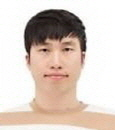 유재영 교수 (연세대학교) |
멀티모달 초거대모델과 활용
Email: sjkang@sogang.ac.kr
본 강연에서는 교육생들에게 최신의 초거대 멀티모달 인공지능 모델, 특히 GPT-4를 포함한 초거대 멀티모달 모델에 대한 지식을 전달하고자 합니다. 본 강연의 학습 과정을 통해 교육생들은 멀티모달 초거대 모델의 개념, 구조, 원리, 그리고 응용 분야에 대해 배울 수 있습니다. - Multimodal datasets, Applications and Backgrounds - Recent Topics on Multimodal Foundation Models - Scaling law of multimodal deep learning
|
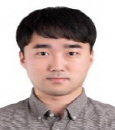 김동진 교수 (한양대학교) |
멀티모달 모델의 최근 연구 동향
Email: djdkim@hanyang.ac.kr
시각정보와 자연어의 멀티모달 모델은 문장 기반 내비게이션이나 시각장애인 보조 등 다양한 활용 분야를 가진 연구 분야이다. 특히, 최근 컴퓨터 비전 및 자연어 처리 등의 딥러닝 기술의 발전과 함께 인간 수준에 가까운 text-to-image 모델의 등장으로 멀티모달 인공지능에 관한 관심이 더욱 높아지고 있다. 본 강의에서는 멀티모달 데이터를 활용한 학습법이 어떻게 발전되어왔는지를 소개하고, 이 과정에서 발생하는 데이터 관련 핵심 문제를 해결하기 위한 최신 학습 방법론들, 더 나아가 최근 응용사례들을 소개한다.
|
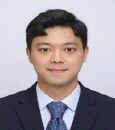 김정욱 교수 (경희대학교) |
자율주행 환경에서 효과적인 객체 검출을 위한 메모리 기반의 멀티모달 학습연구
Email: ju.kim@khu.ac.kr
본 강연에서는 최근에 발표된 (ICCV, AAAI, TIP 등), 자율주행 환경에서 효과적인 2D/3D 객체 검출을 위한 멀티모달 연구를 간략히 소개한다. 특히 다양한 입력정보가 제공되지 않고 단일모달의 입력정보만 제공되더라도 효과적으로 멀티모달 정보를 활용하도록 하는 메모리 네트워크를 고안하여 강인한 객체 검출을 수행하는 연구를 소개한다.
|
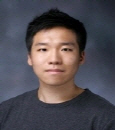 유재준 교수 (UNIST) |
Introduction to Diffusion Models
Email: jaejun.yoo@unist.ac.kr
This lecture is designed for beginners in the field who are intrigued by the applications of AI but are not yet familiar with the fundamentals of diffusion models in generative learning. Diffusion generative models are a powerful tool, but their real power can only be unleashed when one understands the core principles at play. In this talk, I aim to unravel the mysteries of diffusion models, breaking down complex concepts into comprehensible nuggets of knowledge. You will embark on a journey exploring the mechanics of how these models generate new samples, how they differ from other generative models, and how they use random walks to capture the data distribution.
This lecture will guide you through the history and development of these models, provide insights into their functioning, and illustrate their potential through real-world examples. So, whether you are a researcher aiming to expand your knowledge or a student eager to plunge into the depths of AI, this lecture will equip you with a solid understanding of diffusion generative models. |
 진경환 교수 (DGIST) |
Improved Diffusion-based Generative Models
Email: kyong.jin@dgist.ac.kr
본 강연에서는 영상 생성인공지능망인 diffusion model 의 다양한 개선 방법들을 리뷰해 본다. 계산량 개선(sampling acceleration by knowledge distillation), 인코더 개선(deterministic vs stochastic), 디코더 개선(Non-Markovian inference, ODE method)등의 방식들을 알아본다.
|
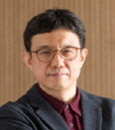 예종철 교수 (KAIST) |
Diffusion Models for Inverse Problems
Email: jong.ye@kaist.ac.kr
Recently, diffusion models have been used to solve various inverse problems for medical imaging applications in an unsupervised manner. However, the current solvers, which recursively apply a reverse diffusion step followed by a measurement consistency step, often produce sub-optimal results. By studying the generative sampling path, we show that current solvers throw the sample path off the data manifold, and hence the error accumulates. Furthermore, diffusion models are inherently slow to sample from, needing few thousand steps of iteration to generate images from pure Gaussian noise. In this talk, we show that starting from Gaussian noise is unnecessary. Instead, starting from a single forward diffusion with better initialization significantly reduces the number of sampling steps in the reverse conditional diffusion. This phenomenon is formally explained by the contraction theory of the stochastic difference equations like our conditional diffusion strategy - the alternating applications of reverse diffusion followed by a non-expansive data consistency step. Furthermore, we propose an additional correction term inspired by the manifold constraint, which can be used synergistically with the previous solvers to make the iterations close to the manifold.
|
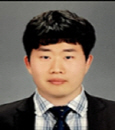 이주호 교수 (서강대학교) |
3차원 재구성 기술 동향: 과거에서 현재까지, 그리고 미래
Email: jhleecs@sogang.ac.kr
본 강연에서는 3차원 재구성 관련 기술들의 과거에서 현재까지 기술 발전의 변천사를 따라 3차원 재구성 관련 기술의 전반적인 지식 및 원리 그리고 기술의 흐름을 이해한다. 이후 3차원 재구성 기술에 대한 향후 연구방향을 살펴본다.
|
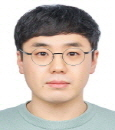 주경돈 교수 (UNIST) |
실내 환경의 구조적인 특성을 이용한 3차원 복원 연구 동향
Email: kyungdon@unist.ac.kr
본 강연에서는 실내 환경의 구조적인 특성을 기반으로, 현재 연구하고 있는 3차원 복원 기법에 대해 간략히 소개한다. 먼저, 실내 환경의 구조적인 특성을 표현하는 다양한 구조적인 가정을 소개하고, 이를 추정하기 위한 다양한 방법을 소개한다. 더불어, 구조적인 가정을 기반으로 전통적인 3차원 복원 기법 및 학습 기반의 3차원 복원 방식에 대해서 소개한다.
|
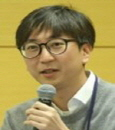 김원준 교수 (건국대학교) |
3D Human Modeling : Mesh Reconstruction and Rendering
Email: wonjkim@konkuk.ac.kr
본 강연에서는 한 장의 이미지를 기반으로 3차원 사람 모델링을 수행하는 최신 기술 동향에 대해 소개한다. 심층신경망을 이용하여 사람 신체의 메쉬(Mesh) 구조를 복원하는 방법부터 이를 기반으로 한 렌더링(Rendering)까지 실험 결과와 함께 자세히 살펴보고자 한다.
|
제136조(벌칙) ① 다음 각 호의 어느 하나에 해당하는 자는 5년 이하의 징역 또는 5천만원 이하의 벌금에 처하거나 이를 병과할 수 있다. <개정 2011. 12. 2.> 1. 저작재산권, 그 밖에 이 법에 따라 보호되는 재산적 권리(제93조에 따른 권리는 제외한다)를 복제, 공연, 공중송신, 전시, 배포, 대여, 2차적저작물 작성의 방법으로 침해한 자 |
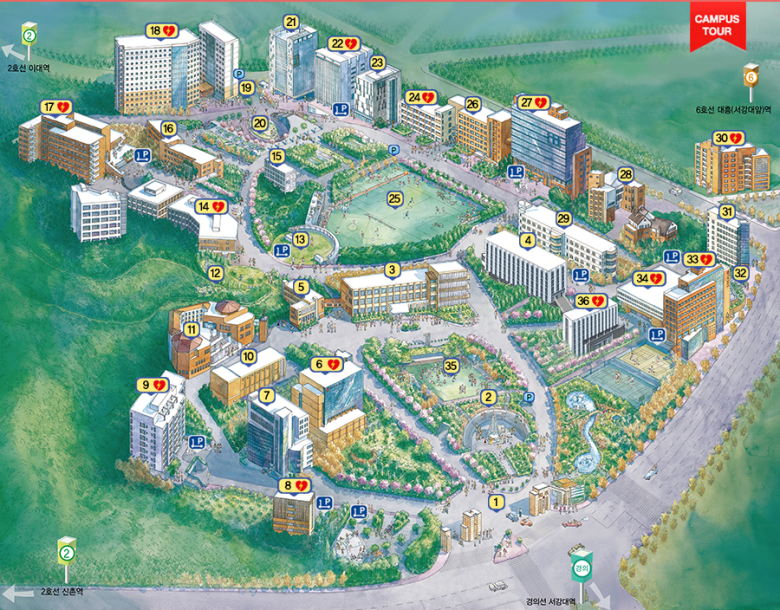
(우 : 06130) 서울특별시 강남구 테헤란로7길 22 (역삼동, 과학기술회관 1관 907호)
사업자등록번호 : 220-82-01685/(사)대한전자공학회 대표 : 김종옥
TEL. 02-553-0255~7/ FAX. 02-562-4753 /EMAIL. ieie@theieie.org
COPYRIGHT ⓒ IEIE ALL RIGHTS RESERVED.